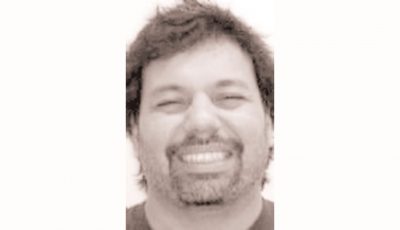Ancestral Puntan Muchot
Our sixth sense or “intuition” gives us the instant sense or ability to know immediately what happened without reasoning. It’s a very powerful sense that comes from the heart.
When it hits I usually engage thoughtful meditation to ensure I’m within my element to understand what has just come my way. I had to do this each time I visit Puntan Muchot. The place seems unsettled in the sense that I’ve never felt comfortable whenever I visit it. There’s a certain aura that I can’t come to terms with.
When visiting the place, I always feel the powerful presence of ancestral spirits in salutary and highly respectful common knowledge conversation. I wasn’t afraid. They’ve prepared me for it. There weren’t any faces only their powerful presence. It was a very humbling experience.
Through their voice I was a beneficiary of traditional history that the U-shaped shoreline isn’t just another pristine beachfront but the home of ancestral fishermen. Do they want it preserved for posterity? It was a lingering query.
Puntan Muchot is situated near the port of entry where inter-island or global trade and commerce must have taken place in yesteryears. With the sakman, the fishermen traverse the open ocean some 500 miles out. The distant fishing confirms traditional use of the waters around us. The sacred venue must have been their landing ground occupied daily by their families in thatched houses built in the area.
Be that as it may, I recall in the late ’50s when I used to frequent the shore with my paternal grandpa who used to fish (throw net or talaya) around it. I’d tag along gathering juvenile fish he’s shaken off his fish net. He even taught me how to scale them with sand. I’d then place them in my coconut basket (lagua`) then collect the rest.
It has sentimental cultural value. It was a place where families used to haul pull-nets catching fish for family sustenance many late afternoons as late as the eighties. The entire clan showed up to help. Sadly, it’s no longer what it used to be.
Today, there are large fish on the sand with oil all over their bodies we call tourists. Most of the prime beachfront land has gone for purposes other than indigenous enhancement. Notice the scarcity of beaches we used to frequent now limited to Paupau, Kilili, and San Antonio or beaches on the windward side of the island? Aren’t beaches an integral part of our way of life here? Ever heard of fishing?
Occasionally, I’d visit the venue just to sit along the shore and let tiny waves wet my feet while the breeze whips in from across the channel. While sitting under shady trees rain pours down from the heavens while my face is pelted with huge grain of wind-driven rain. As the tentacles of colorful sunset disappears out west so does Managaha Island across the channel.
The beach is what makes a way of life on an island not cement walls in urban jungles. It’s part and whole of our experience as islanders. Slowly, though, its use by islanders has faded into the sunset.
Puntan Muchot is famous for its spirits that still roam the place. I should know for I saw some very unusual incidents in and out of the old KJQR Radio Station. A can rolling, fine; but a can standing up, nah! It must be paranormal. I was scurrying into the station.
Perhaps the powerful ancestral presence was meant for those who are willing to listen. I heard their message. It wasn’t physical but spiritual. I could mentally picture their shiny bodies unloading fish against the glare of the sunset. I left at dusk fully wary now of the traditional significance of Puntan Muchot.
Deceptive Security
An intuitive echo deep in my conscience sends an ominous message of destruction on a steady march towards the NMI. It keeps echoing especially during the calm hours of the night.
It deals with land and how its sale—over the next two to three years—would gradually displace the indigenous people right here at home. It resembles silent water that runs deep. Is this an issue to be concerned about?
I hear the rustling of crispy envelopes changing hands. The deepening economic condition would accelerate land sale as families deal with stagnant wages forced by a highly depressive economy. As more land is consummated the quicker we enter a very troubled future.
It sets up the stage for landlessness followed by the more egregious social malignancy of homelessness. Many would eventually be living in the fringes of a community they once called home. Perplexing how it would pan out as the landscape of indigenous traditional values slowly fades in our rearview mirror in favor of deceptive security in new riches.



























